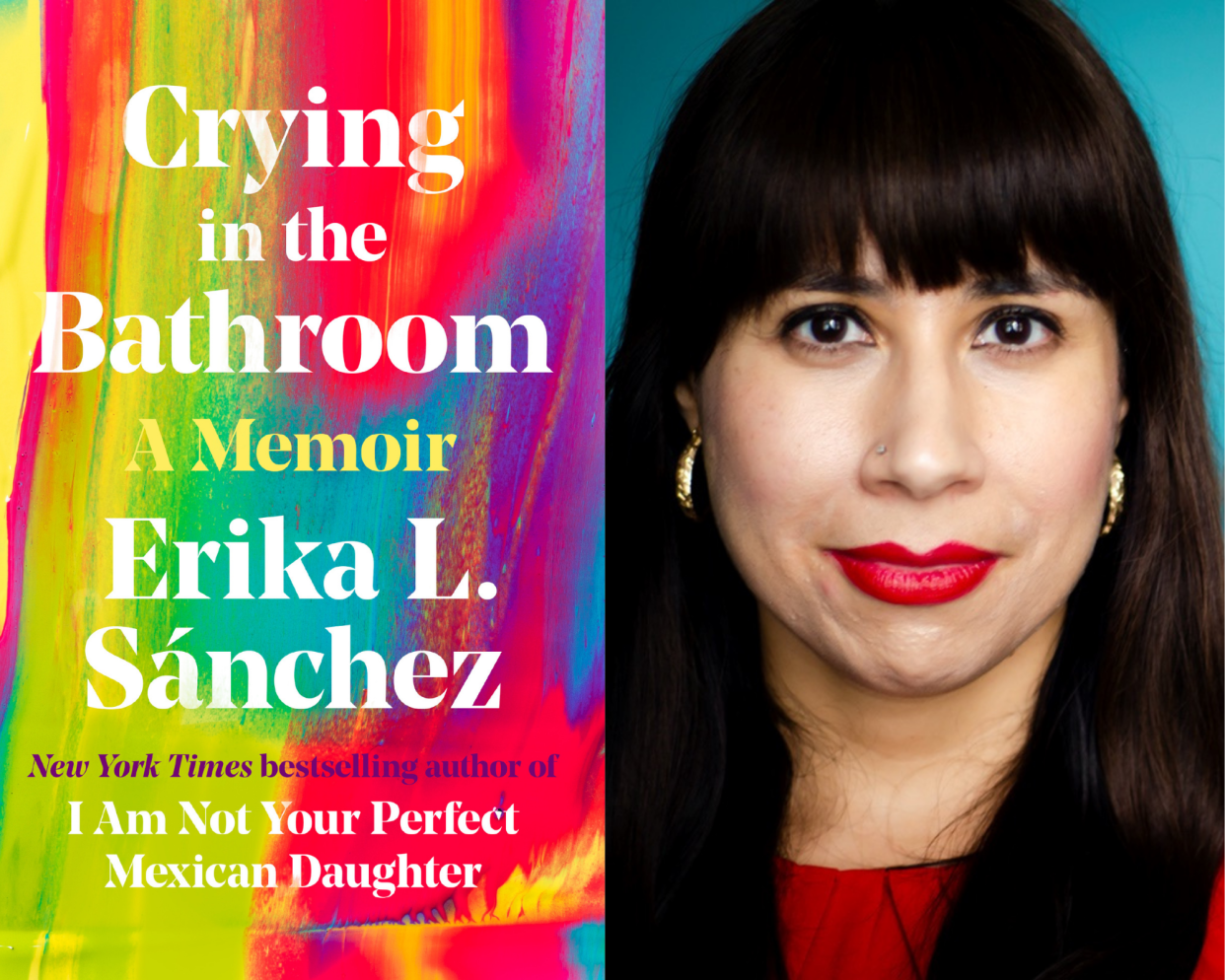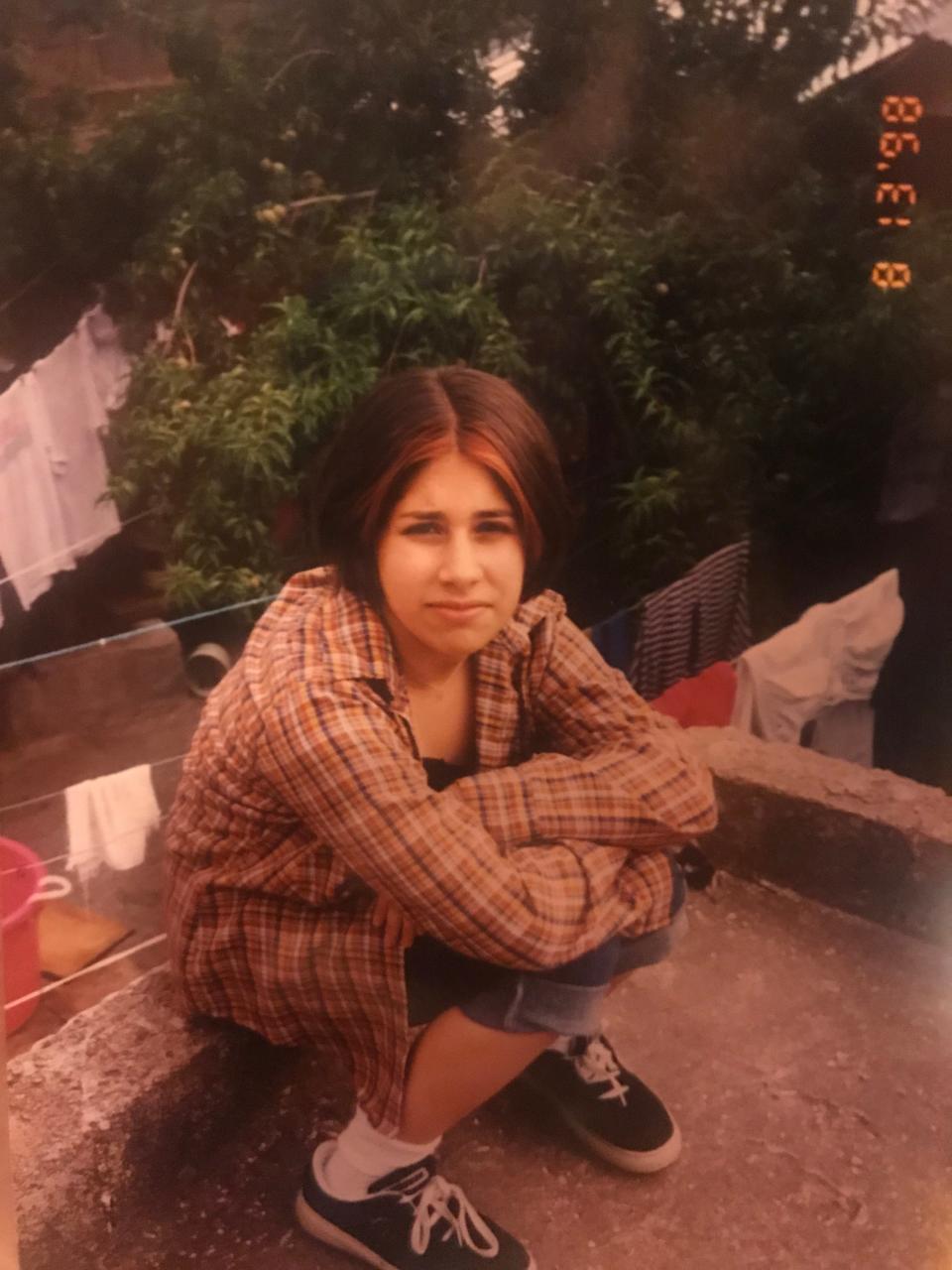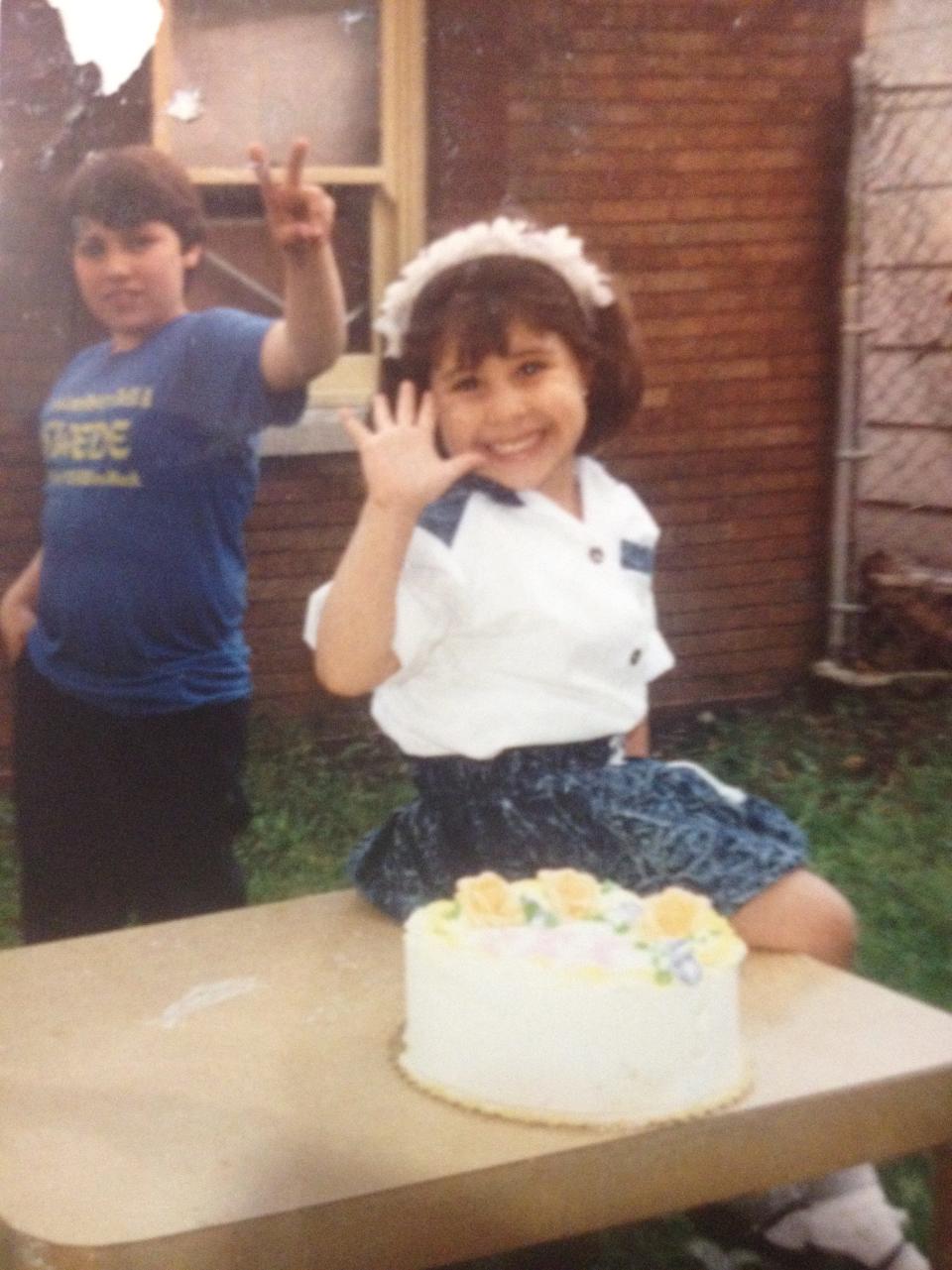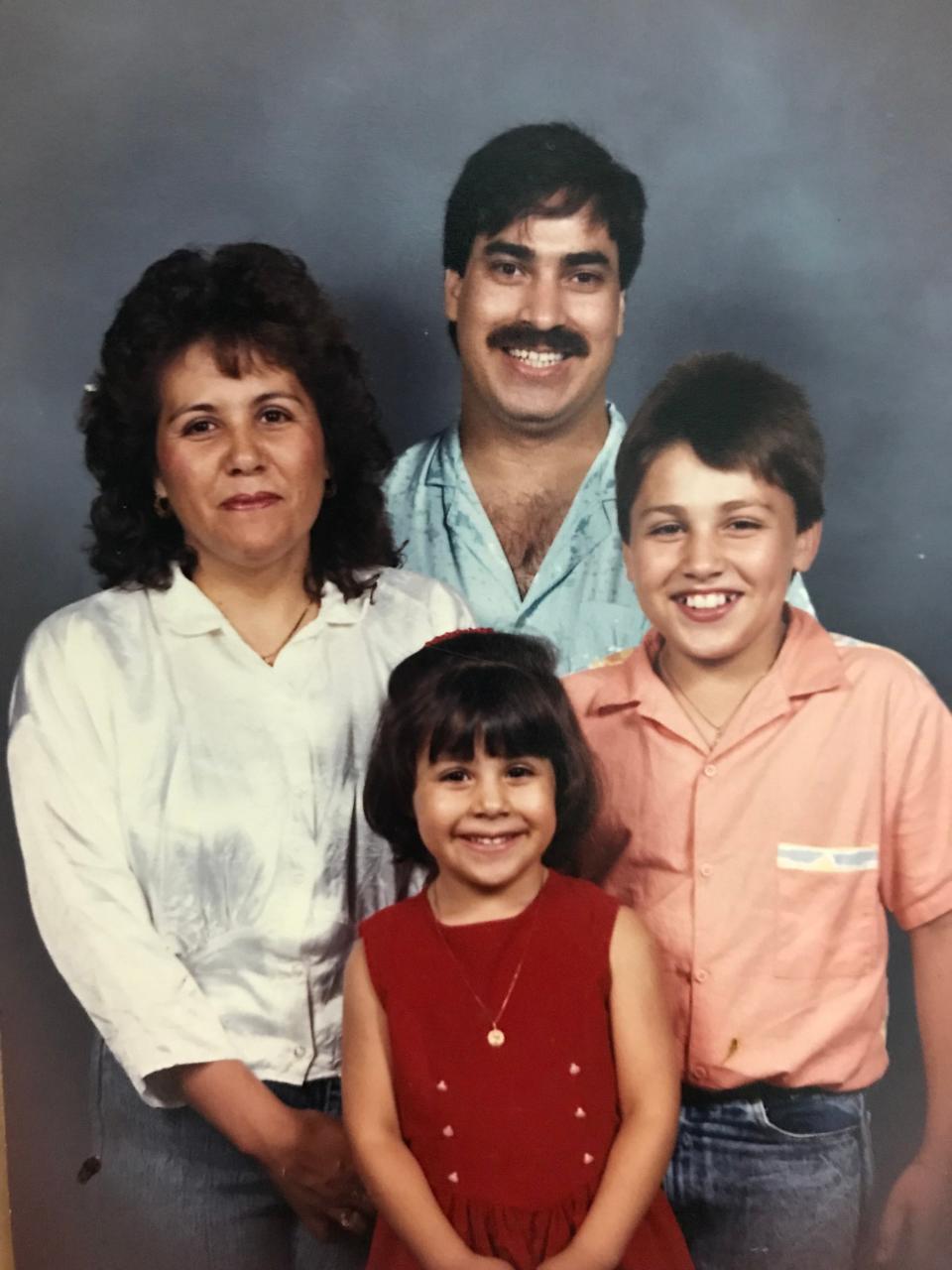Erika L. Sánchez wants women of color to feel seen in 'Crying in the Bathroom': 'I write for my people'

Mexican American writer and National Book Award finalist Erika L. Sánchez is "almost certain" had she not gotten an abortion years ago, she would have killed herself. "I just couldn't go on," she says. "The abortion was a life-saving measure for me. It doesn't have to be that extreme, but for a lot of people it is."
When Roe v. Wade was overturned by the Supreme Court last month, eliminating the constitutional right to an abortion, the "I Am Not Your Perfect Mexican Daughter" author tells USA TODAY it made her feel physically ill, that it was a "really hard blow." In Sánchez's new memoir in essays, "Crying in the Bathroom" (Viking, 256 pp., out now ), she details the difficult experience and how the pregnancy, paired with debilitating depression, made her feel suicidal.
"I will never pretend my abortion was easy. It was, without a doubt, the worst experience of my life," she writes. But she would do it all over again: "I believe the procedure saved me."
As I embark on my tour for my memoir in which I write about my abortion that saved my life, I find out that the Supreme Court has struck down Roe v. Wade. I can’t even breathe correctly right now. They really do want us to die.
— Erika L. Sánchez (@ErikaLSanchez) June 24, 2022
Sánchez says this political moment feels "very triggering," but hopes in sharing her experience, people will talk more about what it actually means for a woman's right to choose.
"I just think of all the women who are going to suffer (and) have children they don’t want to have, who are likely going to be stuck in a cycle of poverty because of the government. It’s really terrifying to think about,” she says.
Abortions don’t have to be traumatic. But the overturning of Roe v. Wade could make it that way.

In "Crying in the Bathroom," Sánchez writes for the ambitious, foul-mouthed, vagabond women like herself who choose to live life on their own terms. She writes about exploring her sexuality, leaving little to the imagination as she describes her adventures during both her "slut year" and "The Year My Vagina Broke." But she also tackles depression, spirituality, familial ties and feminism.
Sánchez's essays also deal with the messiness of being alive. More specifically, existing in American society as a woman of color, growing up in a working-class Mexican immigrant household thinking she "didn't matter, that no one cared what I had to say," she writes.
"Crying in the Bathroom" is her third book, following the poetry collection "Lessons on Expulsion" and 2017 hit "I Am Not Your Perfect Mexican Daughter," which follows a teenage girl through grief after losing her sister and breaking away from the pressures and expectations of growing up in a Mexican American home. Her novel is being adapted into a Netflix film directed by America Ferrera. The script, which Sánchez was "really moved by," is co-written by Linda Yvette Chávez ("Gentefied").
"Each book that I write is harder than the last because I have a lot of expectations for myself and I want to create something totally new and different, and I care so much about the craft of writing," Sánchez says on whether writing poetry, fiction or nonfiction is harder. "They all exhausted me in some form, and each genre has its charms. This last one was particularly painful to write."
Chiquis Rivera reflects on Jenni Rivera's death, her divorce and feeling 'Unstoppable' in new memoir

After her poetry collection and novel were published, Sánchez began teaching at Princeton University on a fellowship and a year in, she was diagnosed with bipolar II disorder. Her whole life, Sánchez dealt with heavy bouts of depression that on two occasions led her to check into a psych ward. She'd felt like something was inherently wrong with her, but finally, she had a diagnosis that made sense.
"It’s really critical that people understand mental illness is not a choice," she says. "It’s not a character flaw. It’s not just being dramatic. It’s a real illness that can cripple your whole life. I’ve been through so many bouts of depression throughout my life, and somehow I survived it all."
Sánchez wants young readers to see themselves in her story, to know there’s nothing wrong with them, no matter what the world projects.
"When I was younger, I felt like I was just so strange and I couldn't explain my feelings and I couldn't explain why I was the way that I was. Everyone made me feel like there was something wrong with me. That's really damaging to a young person, to have them believe that this is their fault, or that they were just born weird."
Dig deeper: What Disney’s 'Encanto' teaches us about self-worth and overcoming intergenerational family trauma
More: 'You're so mature for your age' isn't always a compliment. Sometimes it's from trauma.
“If there’s a book that you want to read, but it hasn’t been written yet, then you must write it,” Nobel Laureate Toni Morrison once said. Like Morrison, Sánchez wrote it. Her memoir is for her younger self, a brown girl growing up in Cicero, Illinois, a suburb of Chicago, in the ’90s. "I just want people to see what it's like to be a person like me, and for brown girls, I want them to feel seen because how often does that happen?" she says.
Who she's not writing for is white people.

In writing "Crying in the Bathroom," Sánchez knew she'd be her authentic self, weaving the dark stuff life threw at her with crass humor she inherited from her family.
"I write for my people. I don't think about white people when I'm writing. I just don't," she says. "I learned that from Morrison: you write what is most authentic to you. The rest of the world could either get with it or not. Otherwise, what am I doing? What's the point of writing?"
Related: Selena Gomez opens up about mental health with Miley Cyrus, talks having bipolar disorder
I was fired after a bipolar episode at work: Do I have any recourse? Ask HR
Listen to a playlist Erika L. Sánchez curated to accompany "Crying in the Bathroom" below:
Zachary Levi had a mental health 'breakdown.' Here's how 'Radical Love' helped him heal
Book bans are on the rise. What are the most banned books and why?
This article originally appeared on USA TODAY: Erika L. Sanchez: 'Crying in the Bathroom' author talks Roe v. Wade

